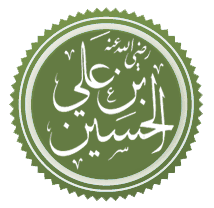Marsiya
A marsiya (Persian: مرثیه) is an elegiac poem written to commemorate the martyrdom and valour of Hussain ibn Ali and his comrades of the Karbala. Marsiyas are essentially religious.[1]
| A series of articles on |
| Husayn ibn Ali |
|---|
 |
| Life |
|
| Remembrance |
|
| Perspectives |
Background
The word Marsiya is derived from the Arabic word marthiyya (root R-TH-Y), meaning a great tragedy or lamentation for a departed soul.[2] Marsiya is a poem written to commemorate the martyrdom of Ahl al-Bayt, Imam Hussain and Battle of Karbala. It is usually a poem of mourning.[3]
This form found a specially congenial soil in Lucknow, an important Shia Muslim community in the Indian subcontinent, where it was regarded as an act of piety and religious duty to eulogize and bemoan the martyrs of the battle of Karbala. The genre was championed by Mir Babar Ali Anis.
Famous marsiya writers in Urdu include Mir Babar Ali Anis, Mirza Salamat Ali Dabeer, Ali Haider Tabatabai, Najm Afandi, Josh Malihabadi, and others. Well-known Persian poets of the genre include Muhtasham Kashani and Samet Borujerdi. In Turkish, Bâkî composed an important marsiya.
Mir Babar Ali Anis, a renowned Urdu poet, composed salāms, elegies, nohas and quatrains. While the length of elegy initially had no more than forty or fifty stanzas, he pushed it beyond one hundred fifty or even longer than two hundred stanzas or bands, as each unit of marsiya in the musaddas format is known. Mir Anis drew upon the vocabulary of Arabic, Persian, Urdu, Hindi, and Awadhi to a great degree.[2][4] He has become an essential element of Muharram among the Urdu-speakers of the Indian subcontinent. The first major and still current critical articulation about Mir Anis was Muazna-e-Anis-o-Dabir (1907) written by Shibli Nomani in which he said "the poetic qualities and merits of Anis are not matched by any other poet".
Chhannu Lal Dilgeer (c 1780 – c 1848), another marsiya poet, was born during the reign of Nawab Asaf-ud-Daulah. He was initially a ghazal poet with the takhallus ‘Tarab’, before focusing on marsiya at a later stage. He converted to Islam and changed his name to Ghulam Hussain. His most popular marsiya is called گھبراۓ گی زینبؑ ‘ گھبراۓ گی زینبؑ.[5]
See also
References
- A History of Urdu literature by T. Grahame Bailey; Urdu Poetry in Lucknow in the 19th century
- "Poetry: Urdu Marsiya, Anees and his Poetry". Archived from the original on August 22, 2010. Retrieved 2010-10-15.CS1 maint: BOT: original-url status unknown (link)
- "The Masters of Marsiya – Anees and Dabeer". Archived from the original on 2011-01-16. Retrieved 2010-10-15.
- Marsiya by Shiraz e Hind on May 15th, 2010 Archived 2010-12-21 at the Wayback Machine
- Chhannu Lal Dilgeer
External links
- Rauf Parekh (2013-11-11). "Karbalai marsiya in Urdu and Persian". Dawn.Com. Retrieved 2014-01-01.
- Rauf Parekh (2013-11-25). "Dabeer, new marsiya and the 'praise-me' virus". Dawn.Com. Retrieved 2014-01-01.
- Rana Safvi (2013-11-12). "RANA's SPACE: The Art of Marsiya Writing and Reciting". Rana-safvi.blogspot.in. Retrieved 2014-01-01.
- "The Making of the Awadh Culture - Madhu Trivedi - Google Books". Books.google.co.in. Retrieved 2014-01-01.
- Madhu Trivedi. Appropriating an Iranian Literary Tradition: Marsiya in the Indian Context (PDF). great-iran.com. Retrieved 2014-01-01.
- Amy Bard. "Value and Vitality in a Literary Tradition: Female Poets and the Urdu Marsiya" (PDF). Columbia University. Retrieved 2014-01-01. Cite journal requires
|journal=(help) - Marsiya of Imam Hasan Hussain